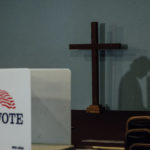Over the years, the need for cognitive closure among those who endorse conspiracy beliefs have peaked the interest of many researchers around the globe.
In a new study, included in the peer-reviewed journal Social Psychological and Personality Science, a research team probed the consequences for some forcefully aiming to adversely insinuate such closure. They found a direct correlation between conspiracy beliefs and an increase in non-normative political engagement, such as violent protesting, vandalism, and other extreme practices.
The new findings were based off two experiments conducted in the U.S. and Germany. The participants, most of which were based in the U.S., were enlisted to envision themselves living in different forms of society.
In one scenario, a set of participants were presented with a traditional conspiratorial ideology that the fate of the general population is under the control of a handful of powerful figures. In another scenario, participants speculated the trustworthiness of the media and politicians, meanwhile, others perceived both the media and governmental bodies as trustworthy in a separate hypothetical.
Conspiratorial ideologies, by definition, can be characterized by the endorsement of unconventional assumptions of conspiracy over more probable explanations. Generally speaking, such ideation is rooted in theoretical limitations and often presumed as a precursor for social and political disengagement. Conversely, however, distinct personality traits and cognitive styles may also illuminate the exhibition of more normative roles by like-minded individuals during disengagement protests.
During the study, a number of questions were given to each participant on measures they would take based on the politically-based scenario chosen for them. Normative roles, such as rallying, voting, and voicing opinions with media sources; and non-normative roles, like vandalism, violence, and other forms of criminality, were common hypothetical choices of action.
Based on their findings, the team concluded that the participants briefed on the scenario involving a conspiracy were more likely to exhibit non-normative measures compared to their counterpart. Although the results were broad in nature and could be interpreted as short-sighted, more research is necessary to understand plausible consequences of conspiratorial beliefs among disseminators of more extreme non-normative actions.
“This finding, together with the observation that many radical and terrorist groups employ conspiracy rhetoric in their pamphlets, might suggest that seeing the world as governed by hidden and illegitimate forces is a driving force for radical violent action as it a) seems justified and b) non-violent means seem futile,” said Roland Imhoff, a researcher at the Johannes Gutenberg University in Germany, as stated in a news release.
“We still lack a grip on the likely relevant differentiation between those who like or endorse conspiracies on social media or when we ask them to what extent they agree and those who actively produce, invent and disseminate conspiracy theories.”


